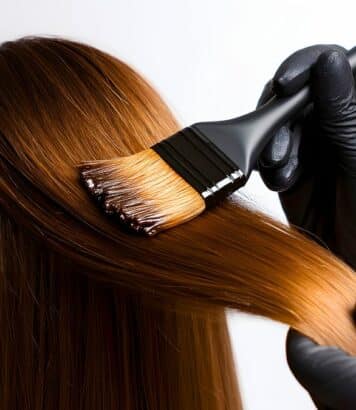Aluminium foil: a microbiologist reveals the kitchen mistake to avoid in order to limit contamination

Wrap a sandwich, cover a baking tray, pop in the oven. Yet aluminum foil is still a material to be handled with care. This reminder, shared by a microbiologist, concerns simple kitchen gestures.
Why this kitchen reflex can be a problem
The specialist explains that aluminum can migrate into food. In certain contexts, this risk is significantly increased.
Specifically, avoid direct contact with tomato sauce, lemon or rhubarb. What’s more, the combination of salty marinade and heat accelerates migration. So fish with lemon, for example, should not touch the foil. On the other hand, it’s best to forget aluminum foil for these specific recipes.
In the oven, the rule doesn’t change – quite the contrary. On the other hand, a dish can be covered if another material separates the food. Baking paper acts as a safe barrier between food and metal. This simple barrier reduces exposure to aluminum foil.
“Never put aluminum in direct contact with acidic or salty foods, especially with heat.”
Storage and cooking: the right gestures
In the refrigerator, contact time also counts. So it’s best to transfer leftovers to a glass jar. The lid closes tightly and avoids the smell of a full fridge. For acidic leftovers, remove the aluminum foil immediately.
Papillote is still possible, but in a different way. For example, make an envelope from baking paper, then reinforce with an outer sheet if necessary. The steam cooks well and protects the delicate juices. You get the convenience of aluminum foil without the need for direct contact.
- Do not allow acidic foods to come into direct contact.
- Avoid the salt + prolonged heat combo.
- For papillotes, use baking paper.
- Store in glass containers in the fridge.
- Throw away any torn or badly creased sheets.
Misconceptions and risks to avoid
We often hear that the glossy side protects better. But glossy or matt: no proven difference in migration. Wear, tears and crumpling weaken the sheet. In such cases, aluminum foil becomes even less suitable.
Another crucial point: the microwave oven. So keep one rule in mind: microwaves + metal = no. Electric arcs can occur and damage the appliance. So forget aluminum foil and opt for glass or ceramic.
Environmental concerns also deserve your attention. So limit the use of disposables, and opt for the safe reuse of containers. Recycling does exist, but on a kitchen scale it remains imperfect. So it’s best to reserve aluminum foil for short, useful uses.
Who needs to be extra vigilant
Some people take extra precautions. Families with young children and the elderly, for example, prefer to avoid prolonged contact with metal foil. Health recommendations are in line with this precautionary approach. So you can adopt these guidelines without changing your entire menu.
Whether in the professional kitchen or at home, the barrier method works well. What’s more, a piece of baking paper placed between the food and the foil is sufficient in most cases. The procedure is simple, reproducible and inexpensive. It also makes it safer to use aluminum foil when serving with heavy loads.
Practical tips for your kitchen
Prepare your marinades in a glass dish with a lid. Also, drain, then cook on a baking sheet lined with baking paper. If you need to cover, place the foil on top of the dish, without food contact. This reduces exposure to aluminum foil.
For desserts, opt for non-stick molds or baking paper. In this way, a tart retains its texture, without reacting with the acidity of the fruit. You retain the crispness, and unmolding remains simple. Time-saving clean-up on busy evenings.
In short, keep to three concrete guidelines: avoid acid, limit salt, reduce heat in direct contact. In addition, choose glass containers for storage, and baking paper for wrapping. Cooking remains creative, safe and fluid on a daily basis. So, with this routine, the use of aluminum foil is back in its rightful place.





No comments
Post a comment
Always participate in accordance with the law and with respect for others.